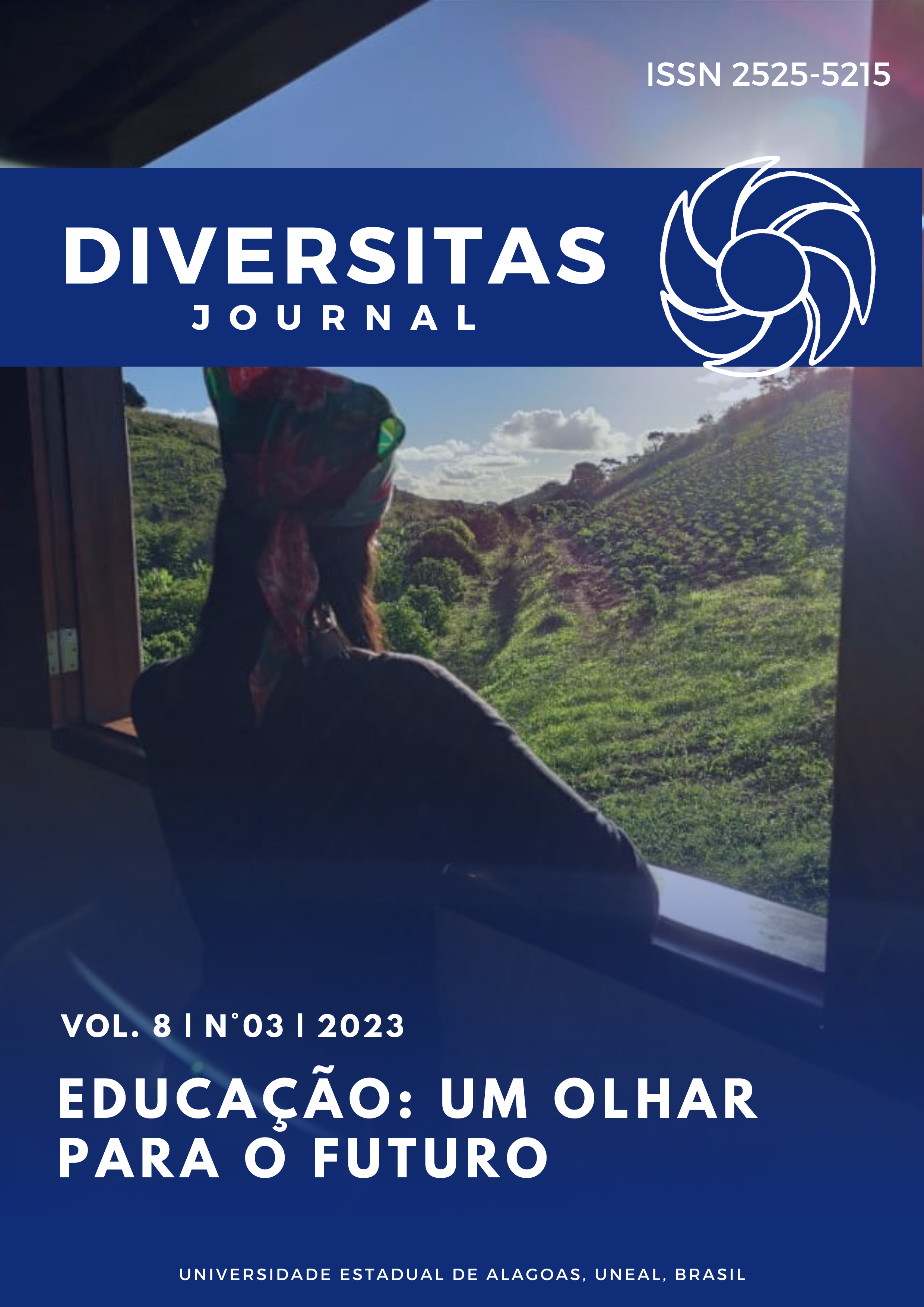Acquired Skills of Graduates of a Local Philippine University and its Relevance to Their Present Job: A Tracer Survey
DOI:
https://doi.org/10.48017/dj.v8i3.2644Palavras-chave:
empregabilidade, competências, habilidades, estudo rastreador, educação terciáriaResumo
Os empregadores precisam de graduados que estejam mais bem preparados para o local de trabalho. Nas Filipinas, as instituições de ensino superior (IES) devem gerar graduados competentes que possam se adaptar às indústrias em rápida mudança, principalmente habilidades e competências. Para avaliar isso, as IES realizam regularmente pesquisas ou estudos de rastreamento ou empregabilidade para garantir que os graduados possuam as competências e habilidades de que os empregadores precisam e que o currículo seja relevante para as necessidades da indústria. Por esse motivo, os pesquisadores realizaram este estudo para documentar as características do emprego, a transição para o emprego e as habilidades adquiridas durante o estudo em uma universidade local de graduados do ano letivo (SY) 2016-2017 ao SY 2020-2021. A descoberta mais proeminente é que os graduados da universidade local veem que as competências e habilidades que adquiriram enquanto estudavam na escola são benéficas para suas carreiras e ajudam em suas classificações e salários. O objetivo da universidade de ser a escolha número um para graduados empregáveis se manifesta no local de trabalho.Métricas
Referências
Abas, M. C., & Imam, O. A. (2016). Graduates’ competence on employability skills and job performance. International Journal of Evaluation and Research in Education, 5(2), 119-125.
Acosta, P. & Igarashi, K. (2017b). Philippines: Keeping in step with what employers want. World Bank. https://bit.ly/3ctT1f7
Badiru, E. O. & Wahome, M. (2016). Conducting graduate tracer studies for quality assurance in East African Universities: A focus on graduate students’ voices on quality culture. Journal of Education and Practice, 7(6), 174-181.
Bringula, R.P., Balcoba, A.C., & Basa, R.S. (2016). Employable skills of information technology graduates in the Philippines: Do industry practitioners and educators have the same view? In Proceedings of the 21st Western Canadian Conference on Computing Education, pp. 10. https://doi.org/10.1145/2910925.2910928
Caingcoy, M. E., Ramirez, I. A. L., Gaylo, D. N., Adajar, M. I. W., Lacdag, E. O., & Blanco, G. A. B. (2021). Employment, employability, and competencies of the Bachelor of secondary education graduates. International Journal of Research in Education and Science (IJRES), 7(3), 872-884. https://doi.org/10.46328/ijres.2328
Commission on Higher Education. (2019). Distribution of Higher Education Institutions by institution type: AY 2018-19. https://ched.gov.ph/distribution-of-higher-education-institutions-by-institution-type-ay-2018-19/
European Training Foundation. (2017). Tracer Studies Evaluating the Impact of Training Programmes. https://www.etf.europa.eu/sites/default/files/CEDE612F00BFF6B3C12581A600278816_Tracer_studies.pdf
Fallah. J. K. (2017). The importance of attitude in workplace. https://www.researchgate.net/publication/343447135_The_Importance_of_Attitude_in_Workplace
Gines, A. (2014). Tracer study of PNU graduates. American International Journal of Contemporary Research, 4(3), 82-98. https://www.aijcrnet.com/journals/Vol_4_No_3_March_2014/10.pdf
Goswami, R. (2013). Importance of soft skills in the employability of it students. In Proceedings of National Conference on Emerging Trends: Innovations and Challenges in IT (19, 20).
Indeed. (2021 March 6). How to demonstrate your willingness to learn in the workplace. https://www.indeed.com/career-advice/interviewing/willingness-to-learn
Kalaw, M. T. (2019). Tracer study of Bachelor of Science in Mathematics. International Journal of Evaluation and Research in Education, 8(3), 537-548. https://ijere.iaescore.com/index.php/IJERE/article/view/17434
Kim, J., Erdem, M., Byun, J. and Jeong, H. (2011), Training soft skills via e‐learning: international chain hotels. International Journal of Contemporary Hospitality Management, 23(6), 739-763. https://doi.org/10.1108/09596111111153457
Laker, D.R. and Powell, J.L. (2011), The differences between hard and soft skills and their relative impact on training transfer. Human Resource Development Quarterly, 22(111-122). https://doi.org/10.1002/hrdq.20063
Mubuuke, A., Businge, F., Kiguli-Malwadde, E. (2014). Using graduates as key stakeholders to inform training and policy in health professions: The hidden potential of tracer studies. African Journal of Health Professions Education, 6(1). http://www.ajhpe.org.za/index.php/ajhpe/article/view/302/233
Patacsil, F. and Tablatin, C. L. (2017). Exploring the importance of soft and hard skills as perceived by IT internship students and industry: A gap analysis. Journal of Technology and Science Education, 7(3). http://dx.doi.org/10.3926/jotse.271
Philippine Qualifications Framework. (n.d.). What is PQF? https://pqf.gov.ph/
Ramirez, T., Cruz, L., and Alcantara, N. (2014). Tracer study of RTU graduates: An analysis. Journal of Arts, Science & Commerce, 5(1), 66-76. https://asset-pdf.scinapse.io/prod/292833989/292833989.pdf
Schomburg, H. (2016). Carrying out tracer studies: Guide to anticipating and matching skills and jobs.https://ingradnet.org/images/schomburg_2016_carrying_out_tracer_studies.pdf.
Tutor, M. V., Jr., Orbeta, A. C., and Miraflor, J. M. (2021). The 4th Philippine Graduate Tracer Study: Examining Higher Education as a Pathway to Employment, Citizenship, and Life Satisfaction from the Learner’s Perspective. Philippine Institute for Development Studies. http://hdl.handle.net/11540/13906.
Vasanthakumari, S. (2019). Soft skills and its application in work place. World Journal of Advanced Research and Reviews, 3(2), 66-72. https://doi.org/10.30574/wjarr.2019.3.2.0057
Williams, A.C. (2015). Soft skills perceived by students and employers as relevant employability skills. Walden University. http://scholarworks.waldenu.edu/cgi/viewcontent.cgi?article=2426&context=dissertations
Woya, A. A. (2019). Employability among Statistics graduates: Graduates’ attributes, competence, and quality of education. Education Research International. https://doi.org/10.1155/2019/7285491
Downloads
Publicado
Como Citar
Edição
Seção
Licença
Copyright (c) 2023 Angelito Bautista Junior, Bradford Antonio Martinez, Isagani Tano, Randel Estacio, Ryan Arago, Gerardo Bautista, Lenard Bien

Este trabalho está licenciado sob uma licença Creative Commons Attribution 4.0 International License.
O periodico Diversitas Journal expressa que os artigos são de unica responsabilidade dos Autores, conhecedores da legislação Brasileira e internacional. Os artigos são revisados pelos pares e devem ter o cuidado de avisar da possível incidencia de plagiarismo. Contudo o plagio é uma ação incontestavel dos autores. A Diversitas Journal não publicará artigos com indicios de Plagiarismos. Artigos com plagios serão tratados em conformidade com os procedimentos de plagiarismo COPE.
A violação dos direitos autorais constitui crime, previsto no artigo 184, do Código Penal Brasileiro:
“Art. 184 Violar direitos de autor e os que lhe são conexos: Pena – detenção, de 3 (três) meses a 1 (um) ano, ou multa. § 1o Se a violação consistir em reprodução total ou parcial, com intuito de lucro direto ou indireto, por qualquer meio ou processo, de obra intelectual, interpretação, execução ou fonograma, sem autorização expressa do autor, do artista intérprete ou executante, do produtor, conforme o caso, ou de quem os represente: Pena – reclusão, de 2 (dois) a 4 (quatro) anos, e multa.”


















